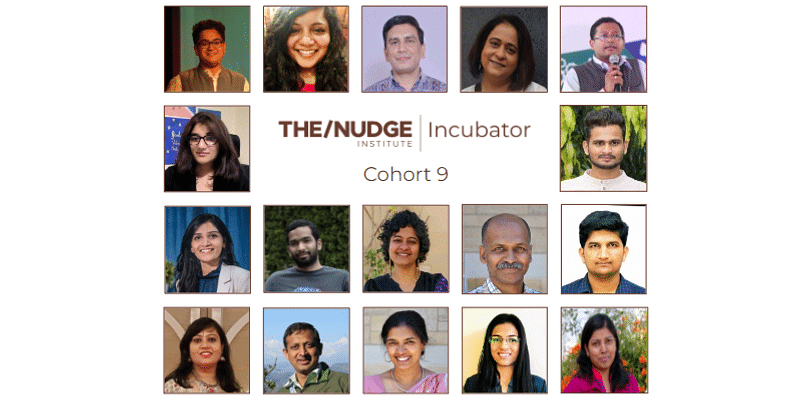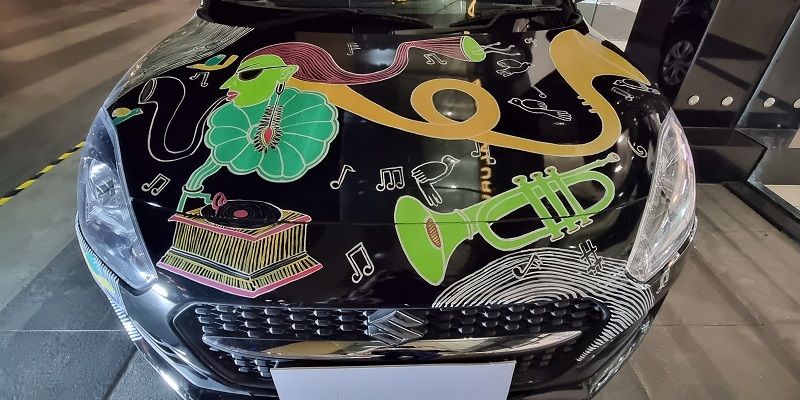
The/Nudge Institute
View Brand PublisherSpotlight:The/Nudge Incubator: Solving India’s livelihood challenges by acting as a catalyst for the non-profit sector
Cohort 9 of The/Nudge Incubator is focusing on startups that are working on India’s most critical livelihood challenges.
Inadequately understood and often over-simplified, the problem of livelihoods requires a holistic approach that addresses multiple factors at play. With the impact of COVID, numerous lives were in a state of distress. An urgent need to approach the well-being of these communities through a lens of livelihood arose. This is precisely what the incubatees of Cohort 9 of The/Nudge Incubator are doing.
When COVID hit India, many enterprises could not support their artisans with wages or healthcare. Around the same time, the Saree Speak community in Boston was keen on supporting artisan communities in India but did not know how to identify verified organisations.
An idea conceived in Priya Krishnamoorthy’s kitchen in Boston, 200 Million Artisans (200M) was initially shaped as a COVID response platform to bridge the gap between Indian artisan communities/enterprises and the Indian diaspora who were keen to support them. An impact-first ecosystem enabler empowering India’s artisan economy, 200M is a social enterprise, merging with other companies to generate insights, inform strategy, and inspire action that will benefit the communities directly or indirectly dependent on craft for livelihood.
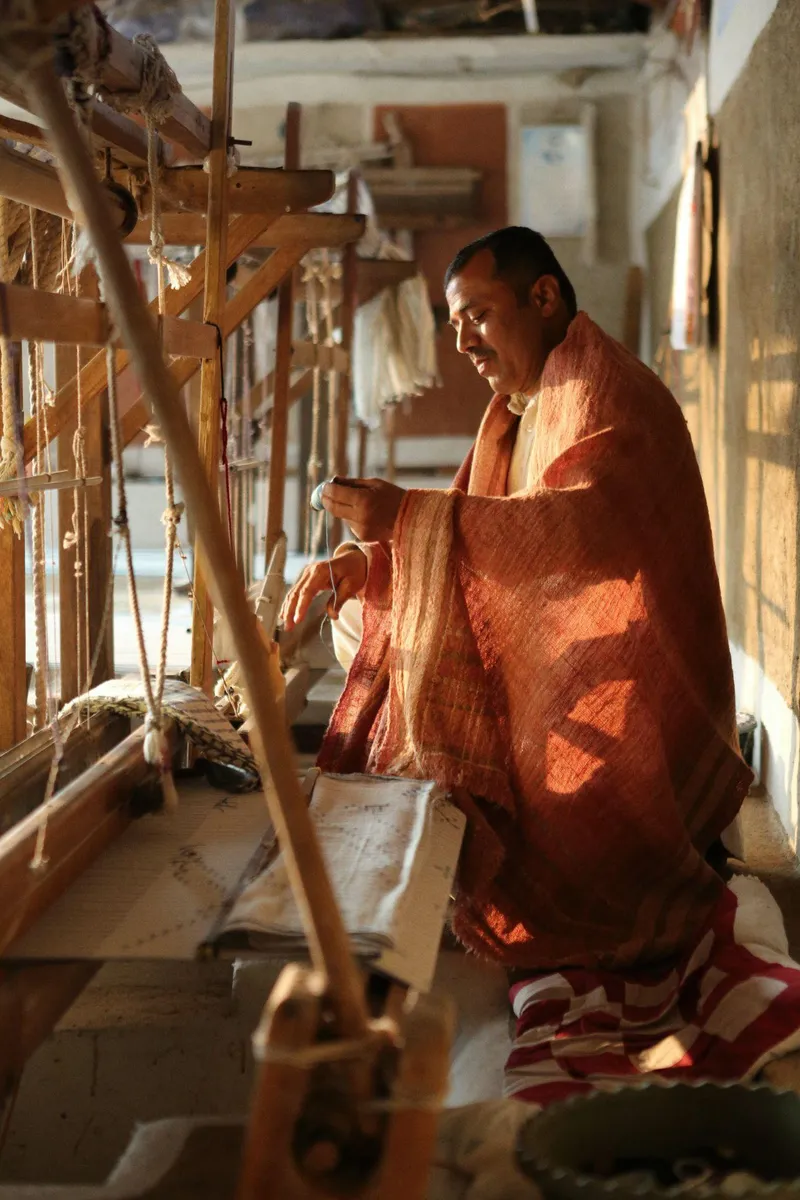
Artisan of 200 Million Artisans, picture credits: RangSutra
200 Million Artisan is currently working on bridging information asymmetries around financing India’s Creative Manufacturing and Handmade items sector. They’re doing this by facilitating a dialogue between investors and craft-led MSMEs in India towards finding common ground for adaptive capital (an approach to catalytic capital) using a collaborative design approach.
While 200M is offering a platform for artisans, Aavishkar is enabling motivated teachers and young thinkers to unlearn the usual topics and conventional methods of teaching.
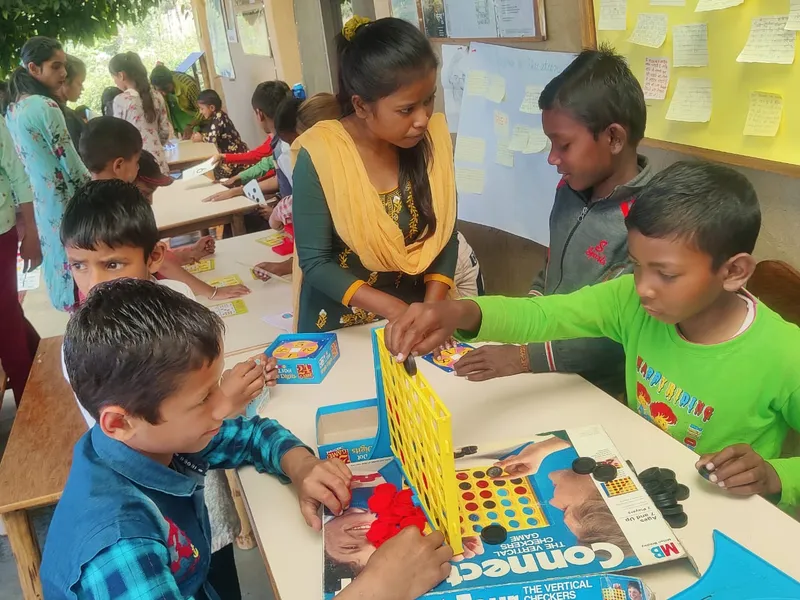
Students of Aavishkar
After Sandhya Gupta and Sarit Sharma moved to Kandbari village, they registered their daughter in the local government school and started volunteering every day. The couple quickly realised how true the Annual Status of Education Report 2021 (ASER) report was, that both reading and basic math levels were way lower than the grade levels. As they started working with students every day to improve basic skills, they realised the gaps in learning due to the way children were being taught.
“We also could clearly see that these gaps are consistently being widened due to our traditional teaching methods in India. We decided that we will put all our efforts into changing the way students experience Math and Science. To create this change, we need to show our teachers what changes need to be made and the vision of what is possible,” shares Sandhya.
Aavishkaar provides long-term support for educators & teachers to strengthen conceptual understanding of content, nurture student-centric pedagogies with a growth mindset. Their program, Math Matters, addresses the problems of women employment and Math phobia while creating educators who possess a strong foundation in concepts and are able to build student-centric pedagogical practices.
The organisation is providing opportunities for women to improve their financial status by working as primary school Math educators. This capacity-building program is opening pathways to numerous livelihood opportunities as well.
Another of the cohort’s founders worked in the development sector for a decade and arrived at the conclusion that linking farmers to the market will help them come out of abject poverty. With this idea, Rakesh left Tata Trust in 2014 to work on helping farmers get better prices through market linkages and tech intervention.
Rakesh Gupta and Namita Pandey’s GramShree is ensuring better prices to farmers for their produce, banking on innovative marketing and establishing community-owned institutions. Working towards the mission of establishing a web-based online marketing platform for marketing rural products, the organisation also aids farmers with direct market access to realise the optimum price of their products.
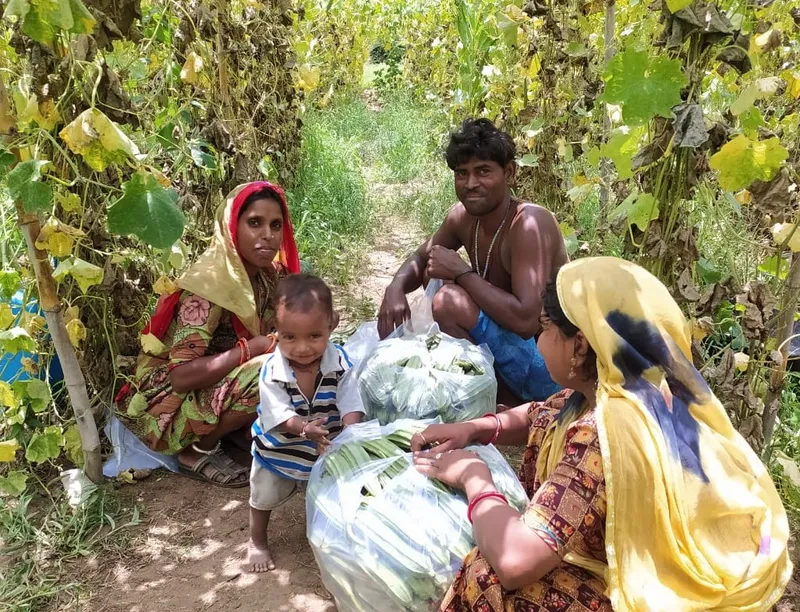
Farmers of Gramshree
Like farmers, another disadvantaged and often overlooked community is that of the differently-abled. Arvind Yadav, a communication specialist at IDEA, is a person with cerebral palsy. He was a law student when he first came to Mallikarjuna’s organisation as an incubatee. Through skill development and proper exposure, Arvind now runs his own YouTube channel for disability advocacy.
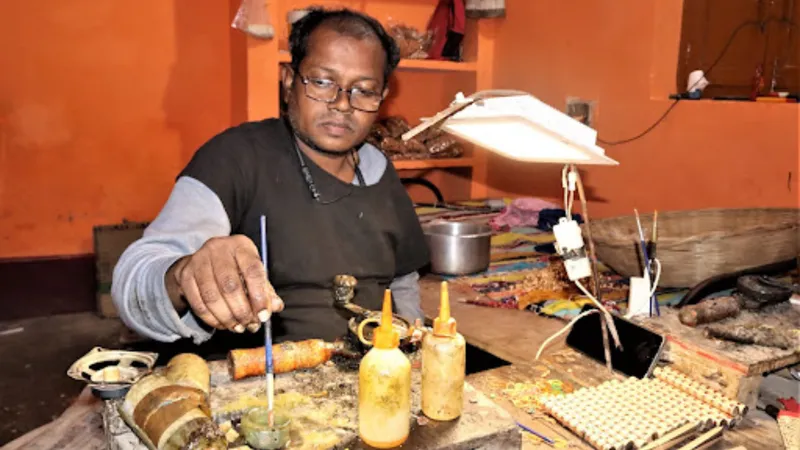
Beneficiaries of IDEA
The untapped potential of the differently-abled and the massive economic contribution that we’re missing out on was the crux behind the formation of the Inclusive Divyangjan Entrepreneurship Association (IDEA). Mallikarjuna Iytha is working towards the objective of making India the inclusive capital of the world. IDEA enables persons with disabilities access to information, services, and facilities across education, health, shelter, skill training, job opportunities, entrepreneurship, healthcare, social-welfare entitlements, and other assistive aids.
Working on the ground and gaining experience from the field has helped most incubatees innovate and draft clear objectives and goals. Nilesh Priyadarshi, the co-founder of Kaarigar Clinic, is no different.
Working for almost 16 years in both the NGO and corporate sectors helped Nilesh get first-hand experience with ground-level problems. His venture Kaarigar Clinic helps to sustain traditional practices by empowering artisans to become micro-entrepreneurs.
Starting from a small village in Kutch, Pabiben and Rajiben have been able to create a pan India impact through their craft. Pabiben has not only become a role model for many women artisans but also a global face for handicrafts.
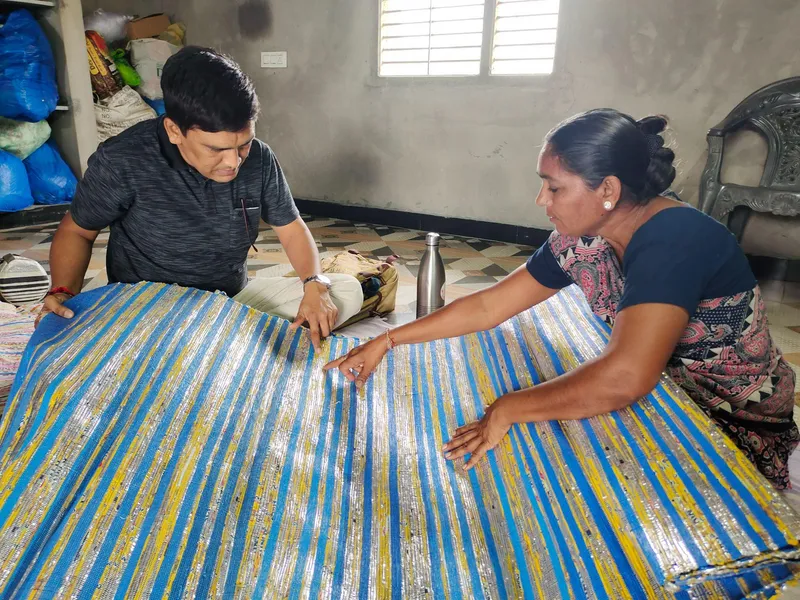
Nilesh Priyadarshi, Co-founder and CEO, Kaarigar Clinic
In this rapidly moving digital age, it becomes even more relevant to equip artisans with design, marketing, and digital skills for running countrywide businesses. As artisans run these businesses from homes, the bigger vision is to promote craft-based capacity building in rural areas to ensure livelihoods, improve the socio-economic standards of the community, and establish a decentralised model of social development.
These organisations are 5 out of the 10 incubatees that are currently in The/Nudge Incubator, a programme acting as a catalyst for the non-profit sector by incubating social impact startups with the potential to scale. Capable and committed problem solvers are supported with an innovation grant, mentoring and sector connects, while they solve some of the toughest problems faced by India’s underserved.
The 10 incubatees were selected from an applicant pool of more than 450, after several rounds of interviews and business plan evaluations. The programme runs for 9 months, but incubatees build connections and gain access to opportunities that stretch for up to 3 years post the incubation.
The/Nudge Incubator’s Cohort 9 is supported by Meta, Sabre and Mphasis F1 Foundation. Stay tuned for part 2 of the story, where we cover the other 5 incubatees.
To know more about The/Nudge Incubator,





